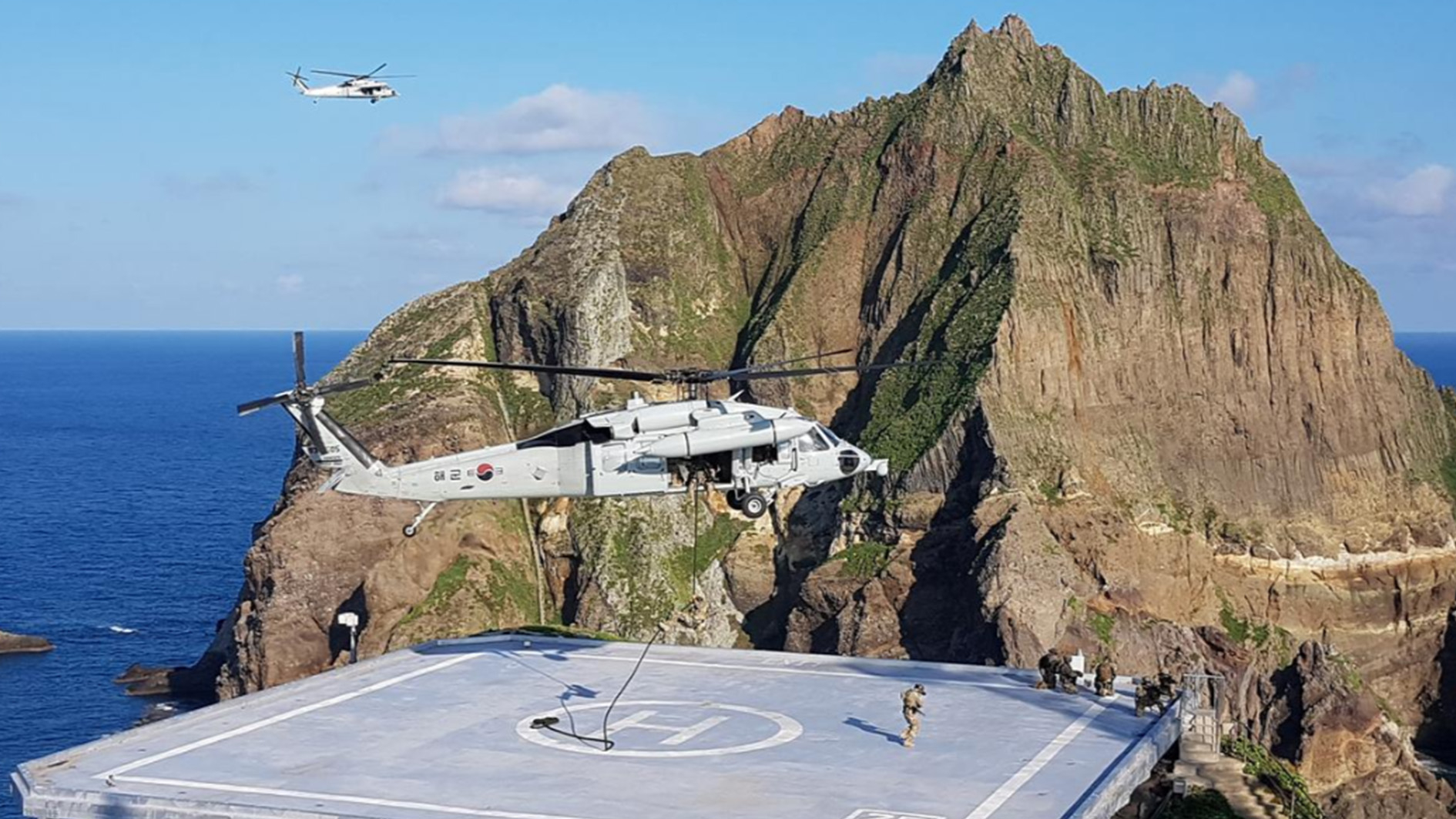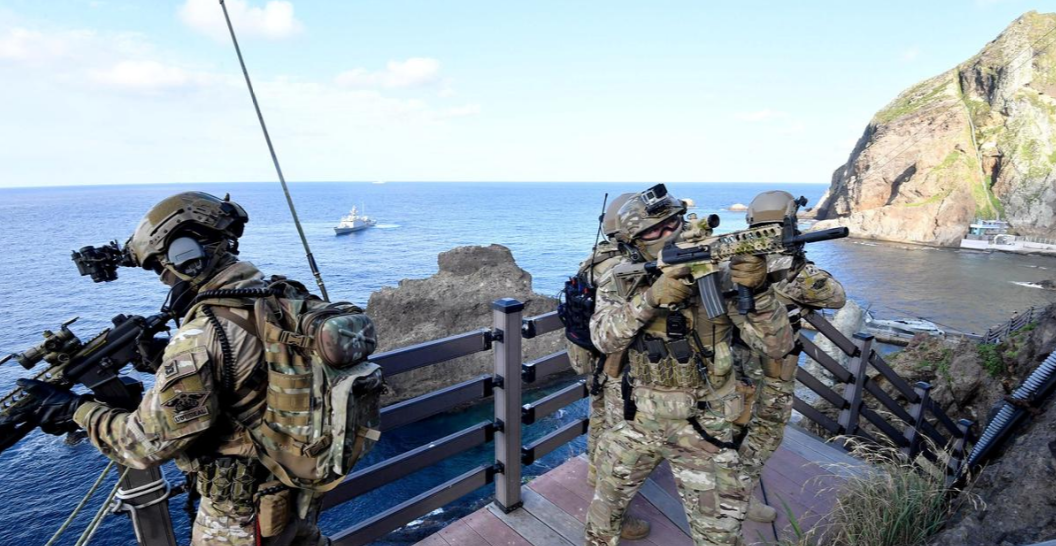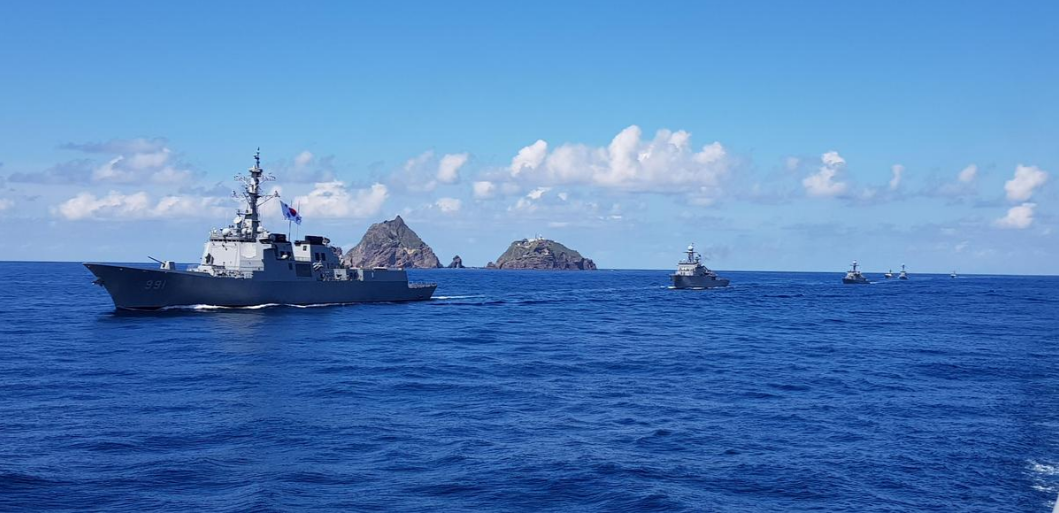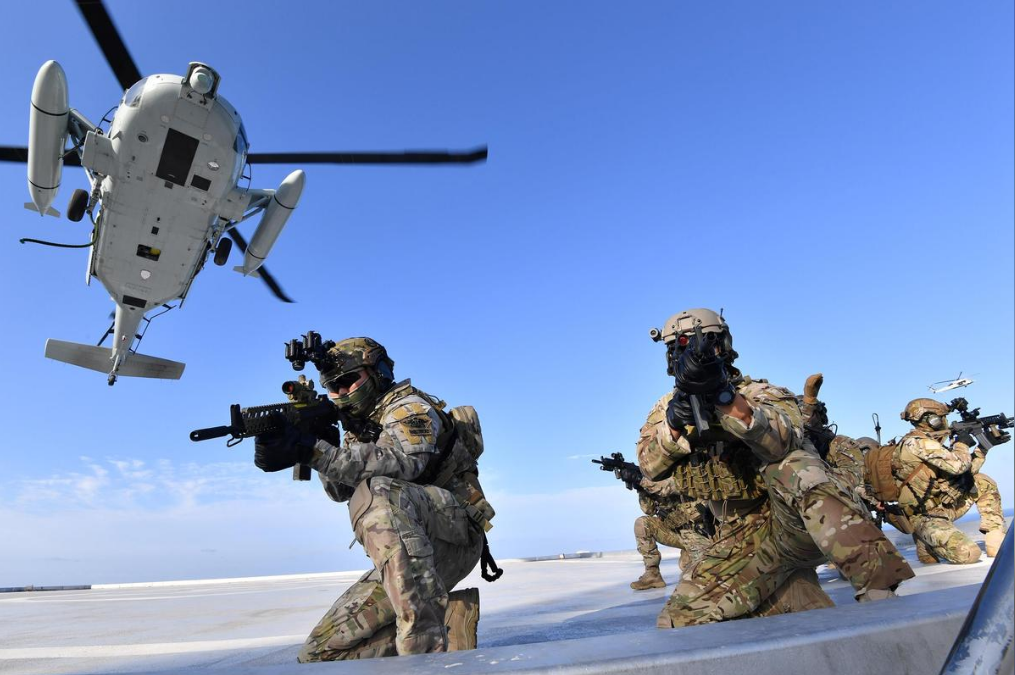

South Korean forces began two days of expanded drills on Sunday around an island also claimed by Japan, prompting a protest from Tokyo only days after Seoul said it would scrap an intelligence-sharing pact with its neighbor amid worsening relations.
Tokyo and Seoul have long been at loggerheads over the sovereignty of the group of islets called Takeshima in Japanese and Dokdo in Korean that lie about halfway between the two countries in the East Sea.
A detachment of South Korean guards has been stationed there since the 1950s and the South Korean maritime forces had conducted annual defense drills around the area, twice a year, mostly in June and December.

South Korean Marine Corps take part in a military exercise in remote islands called Dokdo in Korean and Takeshima in Japanese, August 25, 2019. /Reuters photo
This year's drills were delayed amid the rising trade spat between South Korea and Japan and the controversy over historical issues, the South Korean navy said in a statement.
Participating in the maritime drills in the eastern waters are battleships from the navy and the coast guard, warplanes from the navy and the air force, and service members from the army and the marine corps.
Given the expanded scale, the drills were named as the "East Sea territory defense exercises" this year instead of Dokdo defense exercises, the navy noted.

A South Korean Naval ship patrols around remote islands called Dokdo in Korean and Takeshima in Japanese during the military exercise, August 25, 2019. /Reuters photo
Long-standing dispute
The disputed islands have long been one of the most sensitive areas of contention between the East Asian neighbors.
The Japanese foreign ministry called the drills unacceptable and said it had lodged a protest with South Korea calling for them to end.
The island is "obviously an inherent part of the territory of Japan," Kenji Kanasugi, director general of the ministry's Asian and Oceanian Affairs Bureau, told the South Korean Embassy in Tokyo in a statement.
Ko Min-jung, spokesperson for South Korea's presidential Blue House, said the drill was an annual exercise and not aimed at any specific country.
"It's an exercise to guard our sovereignty and territory," she told reporters in Seoul.

South Korean Marine Corps in the military exercise in remote islands called Dokdo in Korean and Takeshima in Japanese, August 25, 2019. /Reuters photo
Escalating row
Tensions in the region have spiked amid a worsening political and economic spat between the two neighboring countries.
South Korea announced the scrapping of an intelligence-sharing pact with Japan on Thursday, drawing a swift protest from Tokyo and deepening a decades-old dispute over wartime history that has hit trade and undercut security cooperation regarding the Democratic People's Republic of Korea (DPRK).
They soured further when Japan tightened its curbs on exports of high-tech materials needed by South Korea's chip industry, and again this month when Tokyo said it would remove South Korea's fast-track export status.
Japan's export curbs came in an apparent protest against the South Korean top court's ruling ordering some Japanese companies, including Nippon Steel and Mitsubishi Heavy Industries, to pay compensation to South Korean wartime forced labor victims.
Hundreds of thousands of South Koreans were forced by Imperial Japan into hard labor without pay during World War II.
The Korean Peninsula was colonized by Japan from 1910 to 1945.
(With input from Xinhua, Reuters)

Copyright © 2018 CGTN. Beijing ICP prepared NO.16065310-3
Copyright © 2018 CGTN. Beijing ICP prepared NO.16065310-3